Understand Electronic Stability Control: Meaning, Causes, and Troubleshooting
Electronic Stability Control (ESC) is a vital safety feature in modern vehicles to improve stability and prevent accidents. It uses sensors to monitor the direction the driver intends to travel and the vehicle’s actual movement. Suppose the vehicle begins to deviate from its intended path. In that case, ESC intervenes by automatically applying individual brakes to wheels and adjusting engine power to help keep the vehicle on its intended course. Despite its effectiveness, ESC can malfunction due to various causes, such as faulty sensors, software issues, or defective control modules.
Troubleshooting ESC issues involves utilizing a YOUCANIC full system scanner and fixing the root cause, ranging from simple solutions, such as a software update, to more complex repairs, such as replacing a faulty component. Understanding ESC’s meaning, causes, and troubleshooting can help ensure that this important safety feature functions optimally, improving stability and reducing the risk of accidents.
ESC Meaning

ESC stands for Electronic Stability Control, a safety system that enhances a vehicle’s stability by detecting and reducing loss of traction (skidding). It works by applying individual brakes to wheels and adjusting engine power to help keep the vehicle on its intended course. ESC system enhances driving stability and helps prevent accidents by intervening when the vehicle loses control, thus helping the driver maintain control.
Depending on your car manufacturer, the traction control light may be labeled ESC / ESP / DSC. This guide applies to cars equipped with any of the following systems:
- ESC – Electronic Stability Control
- ESP – Electronic Stability Program
- DSC – Dynamic Stability Control
ESC, ESP, and DSC are all acronyms that refer to the same technology in vehicles, known as Electronic Stability Control. These terms are often used interchangeably, but their exact definition may vary slightly depending on the automaker. The basic function of ESC, ESP, and DSC is to help improve the stability of a vehicle by detecting and reducing loss of traction (skidding) during sudden maneuvers or slippery road conditions. The system uses sensors to monitor the direction in which the driver intends to travel and the vehicle’s actual movement. Suppose the vehicle begins to deviate from its intended path. In that case, the system intervenes by automatically applying individual brakes to wheels and adjusting engine power to help keep the vehicle on its intended course. Regardless of the name, all of these systems serve the same purpose of improving vehicle handling, stability, and safety.
Common Problems

Several technical issues can cause problems with the Electronic Stability Control (ESC) system:
- Faulty sensors: ESC relies on sensors to monitor the vehicle’s movement and direction; any malfunction or damage to these sensors can cause the ESC not to work properly. The ABS wheel speed sensor is the most common problem that triggers stability control error messages.
- Software issues: ESC uses a control module that runs on software; any bugs or glitches in the software can cause the ESC to malfunction.
- Damaged control module: The control module, which is the brain of the ESC system, can get broken for various reasons such as electrical issues, water damage, or physical damage, which can result in ESC problems.
- Wiring issues: ESC relies on a network of wires and connectors to communicate with other parts of the vehicle; any issues with the wiring or connectors can result in the ESC not functioning properly.
- Incorrect calibration: ESC requires proper calibration to work correctly; any calibration issues can result in the ESC not functioning properly.
- Failed components: The ESC system contains several components like actuators, valves, and solenoids that can fail over time, resulting in ESC problems.
- Brake light switch – A defective switch can trigger the ESC light. This is a common problem. Easy to replace and inexpensive.
- Steering angle sensor – The sensor may require calibration.
- Low battery – Low battery voltage.
It is important to diagnose and fix the root cause of any ESC problems to ensure that this important safety feature is functioning optimally and reducing the risk of accidents.
Troubleshooting
The stability control system, in most cases, comes on because of a faulty ABS wheel speed sensor. Other problems can trigger the stability control light to come on. If the stability control light is constantly on, the system is disabled or malfunctioning.
Below are a few simple things to check if your stability control light is on.
Check the Stability Control Button
On your dashboard, an ESC button may have been pressed accidentally. You can manually turn the ESC light off if that’s the case. Start the car. Find the switch that says ESC, ESP, or DSC on the dash and press it for three seconds. Look at your instrument cluster to see if the light is turned off.
Diagnose the stability system.

The fastest way to determine why your stability control light is on is to use a diagnostic scanner to read codes from the stability and ABS modules. You must have an ABS scanner to diagnose ESC and ABS problems. Basic OBD-II code readers are not able to communicate with the ABS module. Use a diagnostic scanner such as YOUCANIC Full System Scanner to scan your car’s multiple systems via the OBD-II port.
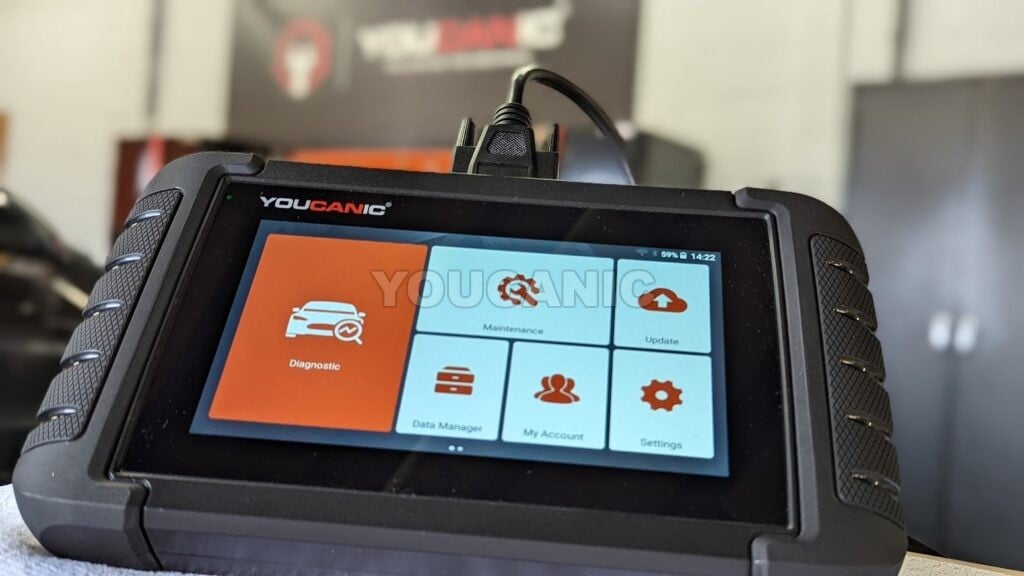
If your vehicle is still under warranty, take your car to the dealer to properly diagnose the ESC problem. There shouldn’t be a charge to fix stability problems if the vehicle has an existing warranty.

| Step 1: Plug in the scanner on the OBD-II port under the dashboard. |
| Step 2: Turn the ignition to the ON position. Do not start the car. |
| Step 3: Access the ESC and ABS menus and read fault codes. |
What causes the stability control light to come on?
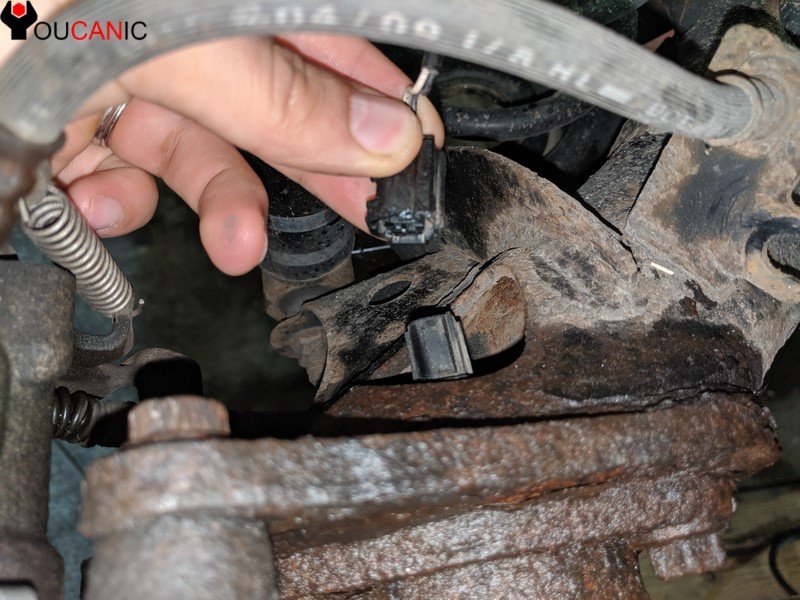
8 out of 10 times, the stability control light comes on due to a faulty wheel speed sensor or an ABS sensor. These sensors can fail over time, get dirty, and damage the wires or connectors. It is a widespread problem and relatively easy to fix. A faulty steering angle sensor is the second most common problem that triggers the stability control light.
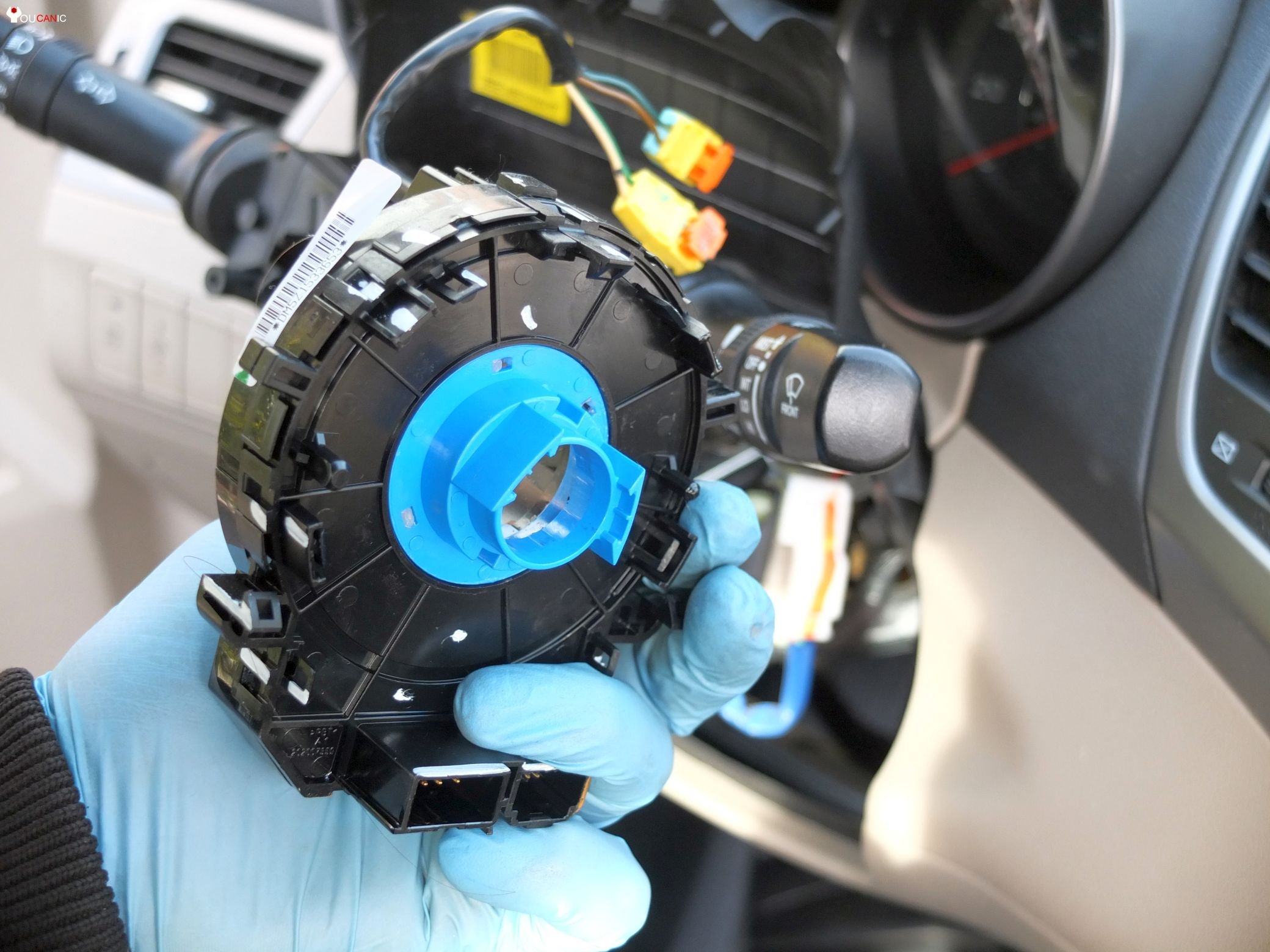
You may notice that both ABS and stability lights have turned on simultaneously. The stability system depends on the ABS module to function properly. Therefore, if there is a problem with the ABS module, the stability system will not function.
Why is my stability control light flashing?
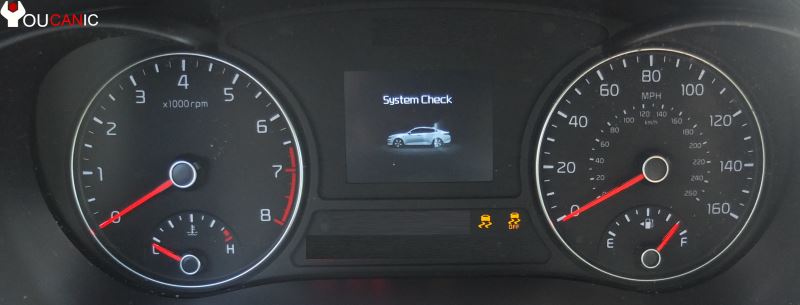
Under normal operation, the ESC light should only be on when you start the car for a few seconds and then turn it off. If the ESC light is flashing when driving, the system is engaged and trying to keep the vehicle under control.
It doesn’t mean that there is something wrong with the ESC system. It means that you may be going too fast and should slow down. ESC will flash if you are going through a corner too fast. The light turns off under normal driving conditions.
How do I know if my car has stability control?
Most cars have stability control installed, but it may be called a different name. Electronic stability control (ESC) may also be referred to as an electronic stability program (ESP) or dynamic stability control (DSC).
Here is a list of what ESC is called on different makes.
| Acronym | Make |
|---|---|
| ESC | Hyundai, Kia, Chevrolet, Dodge, Chrysler, Audi, Saturn |
| ESP | Mercedes-Benz, VW, Sprinter, Suzuki, BMW, Renault, Jeep |
| DSC | Mazda, BMW, Jaguar |
| StabiliTrak | General Motors, Cadillac, Chevrolet, Buick, GMC, Holden, Opel, Vauxhall, GM |
My stability light came on after changing the battery.
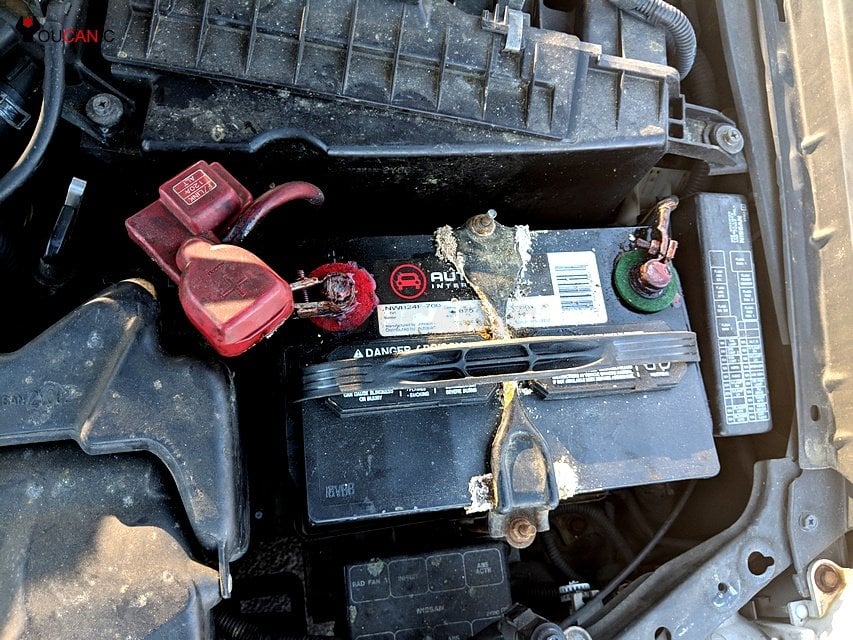
If the ESC light stays on after you replace the battery, don’t panic. All you need to do is start the car and turn the steering wheel fully left and right several times. Then, drive for a minute, and the ABS and ESP lights should reset. Once the system does a self-check, it should reset the stability light.
Do different tires turn on the stability traction lights?
If you install different tire sizes on the front vs. the back, you may cause the ESC to malfunction.ESC may also come on when using a spare tire with a different diameter than the other tires on the car.
We hope you find the Electronic Stability Control (ESC) | Symptoms Problems guide helpful. Check these troubleshooting and repair guides for more help on your vehicle.

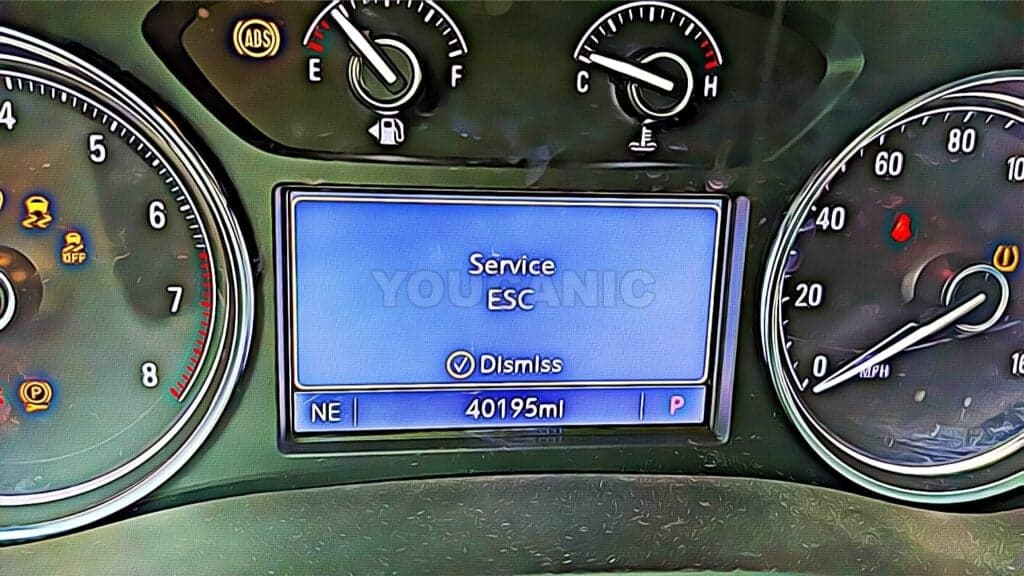







Hi My esc off light came on on my dash board panel. I have a 2008 Hyundai Santa Fe seems to be running fine. The ESC off light is no longer on the dashboard panel it went off. And now the check engine light is on
My esc light comes on then the stability and hill start asst and the abs light comes on then after a few minutes they all clear again is this a doggie sensor probably
(No subject)
i change front shock absorbers, and now, when i drive into left corner on road, esp comes on. and that only in left corner
now i dont know if shock absorber its bad or what